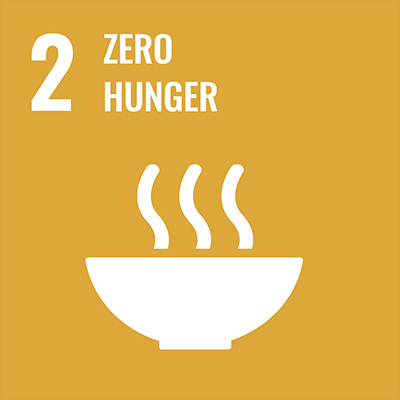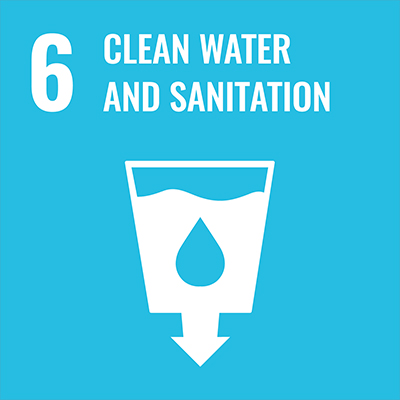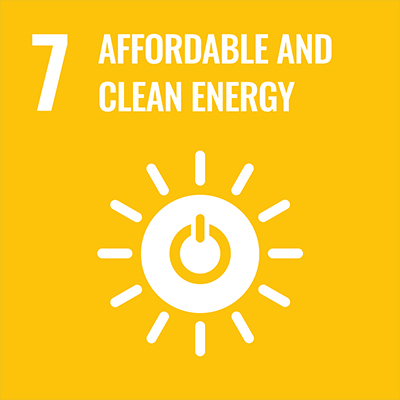Ali Karnib
Associate Professor of Practice: Water-Energy-Food Nexus
Dr. Ali Karnib holds a PhD in Civil Engineering from Artois University, France. He has published over 60 publications which include scientific research and United Nations technical reports. He is a member of the Editorial Board of the Water Resources Management Journal (Springer Editions) and the International Water Utility Journal.
Research Interests
His main research interests include sustainable water resources management, assessment of the impact of climate change on water resources, water supply and sanitation, sustainable energy and water-energy-food-ecosystems nexus. He developed “the Q-Nexus Model”, a science-based water-energy-food-ecosystems (WEFE) nexus model, to assess the direct and indirect impacts of the interconnections between water, energy, food and ecosystems systems (www.q-nexus.net).
SDGs Research Mapping
Dr. Ali Karnib conducts research relevant to the following SDGs:



Selected Publications
- Karnib Ali & Alame Abir, 2020, Technology-Oriented Approach to Water-Energy-Food Nexus, International Journal of Energy and Water Resources, https://doi.org/10.1007/s42108-020-00061-w.
- Karnib Ali, 2018, Bridging Science and Policy in Water-Energy-Food Nexus: Using the Q-Nexus Model for Informing Policy Making, Water Resources Management Journal, Vol. 32, 4895-4909.
- Karnib Ali, 2017, Qualitative Nexus Model for Evaluating Direct and Indirect Interlinkages across the Sustainable Development Goals, International Journal of Development and Sustainability, Vol. 6 No. 9, pp. 1150-1158.
- Karnib Ali, 2017, Mapping the Direct and Indirect Interlinkages across the Sustainable Development Goals: A Qualitative Nexus Approach, International Journal of Development and Sustainability, Vol. 6 No. 9.
- Karnib Ali, 2017, A Quantitative Nexus Approach to Analyze the Interlinkages across the Sustainable Development Goals, Journal of Sustainable Development, Canadian Center of Science and Education, Vol. 10, No. 5, 173-180.
- Karnib Ali, 2017, Water, Energy and Food Nexus: The Q-Nexus Model, 10th World Congress of EWRA on Water Resources and Environment “Panta Rhei”, 5-9 July 2017 Athens Greece, 701-709.
- Karnib Ali, 2017, Water-Energy-Food Nexus: A Coupled Simulation and Optimization Framework, Journal of Geoscience and Environment Protection, Scientific Research Publishing Inc., 5, 84-98.
- Karnib Ali, 2017, Evaluation of Technology Change Effects on Quantitative Assessment of Water, Energy and Food Nexus, Journal of Geoscience and Environment Protection, Scientific Research Publishing Inc., 5, 1-13.
- Karnib Ali, 2017, Quantitative Assessment Framework for Water, Energy and Food Nexus, Computational Water, Energy, and Environmental Engineering Journal, Scientific Research Publishing Inc., 6, pp 11-23.
- Karnib Ali, 2016, A methodological approach for sustainability assessment: application to the assessment of the sustainable water resources withdrawals, International Journal of Sustainable Development, Inderscience publishers, vol. 19, no. 4, 402-417.
- Karnib Ali, 2016, Assessing population coverage of safely managed wastewater systems: Case study of Lebanon, Journal of Water Sanitation and Hygiene for Development, vol 2, 313-319, doi: 10.2166/washdev.2016.009.
- Karnib Ali, 2015, Evaluation of the Quality of Service of the Water Supply Delivery in Lebanon, Journal of Water, Sanitation and Hygiene for Development, IWA publishing, vol 1, 17-27, DOI:10.2166/washdev.2014.057.
- Karnib Ali, 2014, A Methodological Approach for Quantitative Assessment of the Effective Wastewater Management: Lebanon as a Case Study, Environmental Processes Journal, Springer Publishing, vol 1, issue 4: 483–495, DOI: 10.1007/s40710-014-0032-8.
- Karnib Ali, 2004, An approach to elaborate priority preorders of water resources projects based on multi-criteria evaluation and fuzzy sets analysis, Journal of Water Resources Management, Kluwer Edition, vol 18, issue 1, pp 13-33.
- Karnib Ali, 2004, A methodology for impervious cover estimation in urban development using fuzzy set theory, Lebanese Science Journal, National Council for Scientific Research Edition, vol. 5, no. 2, pp 105-119.
- Blanpain Olivier, Karnib Ali, Al-Hajjar Jihad, 2004, A decision making tool providing aid in choosing a storm drainage network solution: description and analysis, Urban Water Journal, Elsevier Edition, vol 1, issue 3, pp 217-226.
- Karnib Ali, Al-Hajjar Jihad, Boissier Daniel, 2002, An expert system to evaluate the sensitivity of urban areas to the functioning failure of storm drainage network, Urban Water Journal, Elsevier Edition, vol 4, nb. 1, pp. 43-51.
- Karnib Ali, Blanpain Olivier, Al-Hajjar Jihad, Boissier Daniel, 2001, Elements for multi-criteria modeling of urban storm drainage network planning, Lebanese Science Journal, National Council for Scientific Research Edition, vol. 2, no. 2, page 35-58.
- Blanpain Olivier, Karnib Ali, Al-Hajjar Jihad, Boissier Daniel, 1998, An approach to compare, from the hydraulic operation viewpoint, propositions of extension of an urban drainage network, Journal of Water Science, Lavoisier Edition, vol. 11, nb 2, page 241-254.
- Blanpain Olivier, Karnib Ali, Huc Alexandra, 1998, Modelling of urban drainage systems from incomplete data - Preliminary results, Novatec 98, Lyon, France, page 223-230.
- Karnib Ali, Blanpain Olivier, 1996, A hydroinformatic tool to evaluate the global functioning of an urban storm drainage network, Hydroinformatics 96, Zurich, Balkema productions, page 905-911.
- Karnib Ali, Al-Hajjar Jihad, Boissier Daniel, 1996, The operation of a storm drainage network: An Expert System to evaluate the sensitivity of the urban fabric to network failure, EXPERSYS-96, Paris, Technology Transfer Series, page 407-412.
- Blanpain Olivier, Karnib Ali, Al-Hajjar Jihad, 1995, Multicriteria Decision aid in infrastructure planning and management, EuropIA 95, Lyon, EuropIA productions, Page 691-703.
Click here for the full list of publications.
Academic Degrees
- PhD in Civil Engineering, Artois University, Béthune, France, 1996.
- MS in Civil Engineering, Lille University of Science and Technology, Lille, France, 1993.
- BE in Civil Engineering, Beirut Arab University, Beirut, Lebanon, 1991.